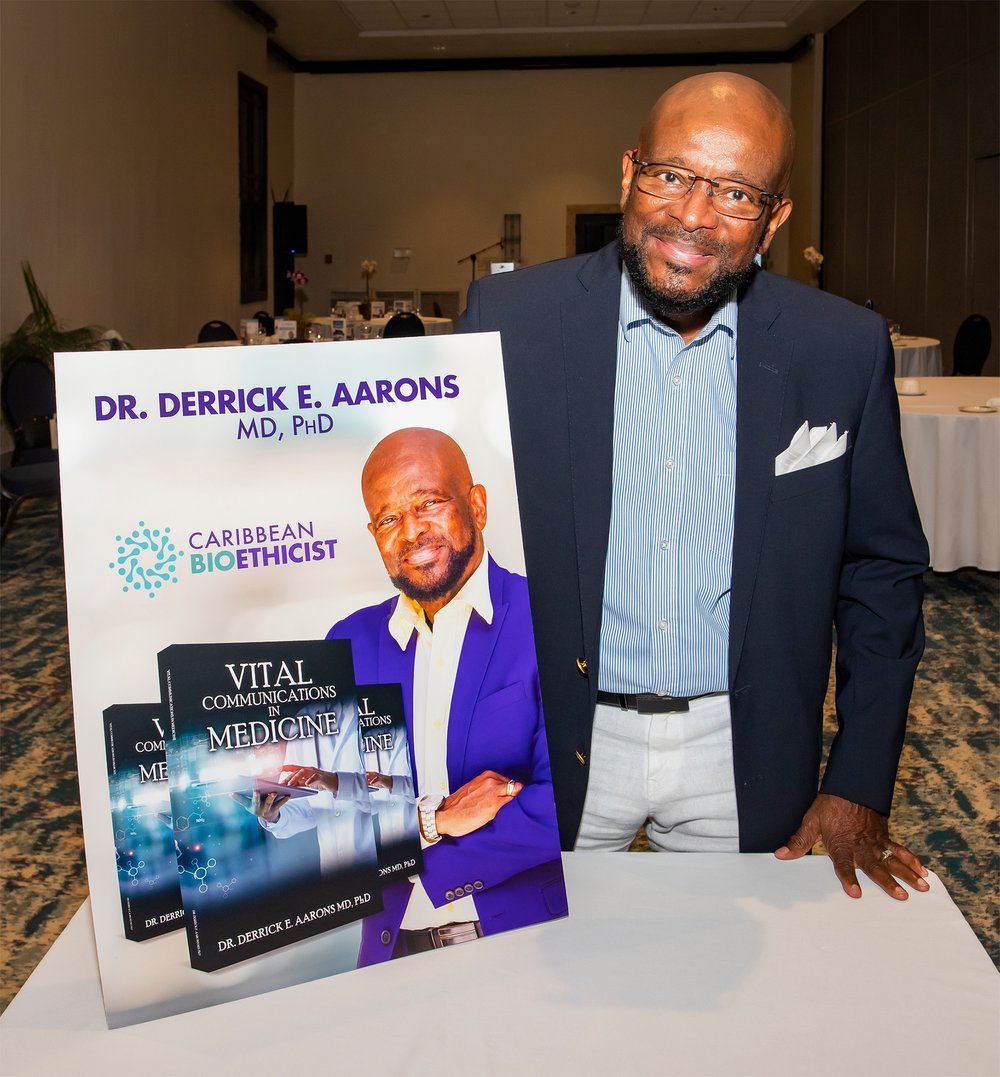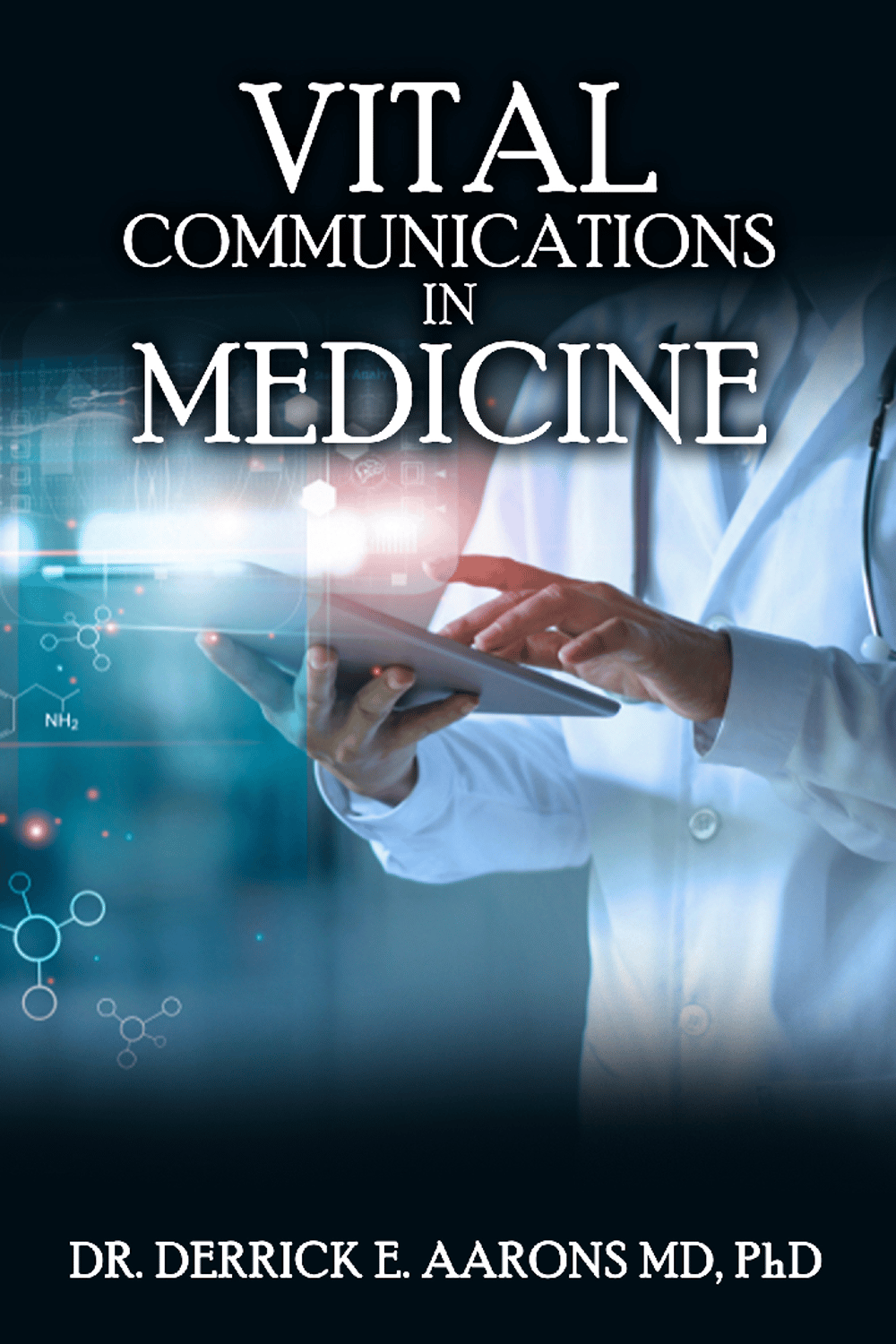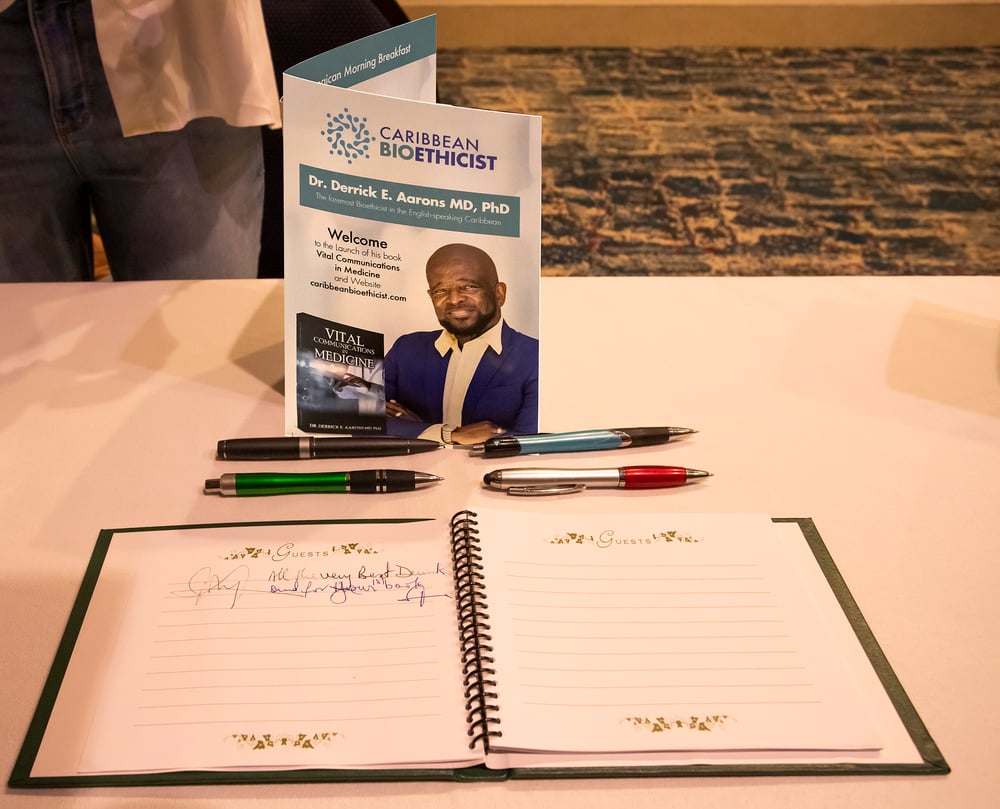VITAL COMMUNICATIONS IN MEDICINE

“Hospital admissions or re-admissions and unnecessary investigations are sometimes preventable by the doctor extracting the correct information from the patient.”
-Dr. Derrick Aarons
A powerful resource for health care professionals, patients, and their families that provides the knowledge needed to change the way we communicate in the medical field and seeks to improve patient outcomes.
The principles of communication to be found within this book are applicable to all human beings who may fall ill, and all who may have to care for those who are ill. All health care personnel have a vital role to play in communication in medicine and within the health care setting, and this communication occurs daily all over the world.
Medical doctors and instructors, medical students, nurses, nursing instructors, nursing students, pharmacists, pharmacy technicians, physiotherapists, optometrists, psychologists, chiropodists, nutritionists, audiologists, occupational therapists, podiatrists, paramedics, dietitians, dental hygienists, speech therapists, medical technologists, acupuncturists, radiographers, and all members of the health care professions who interact with patients and their relatives, as well as members of the public who will at some time require health care – will benefit from reading, adopting, and actuating the principles and communicative methodology described and recommended in this book.

If you are like everyone else in the world and have utilized medical services at some point in your life, whether as a patient, medical practitioner, or a patient’s family member, Vital Communications in Medicine, written by Dr. Derrick Aarons J.P. – MB.BS. (UWI), M.Sc. (Bioethics), Ph.D. (McGill), is essential reading material for you.
Dr. Aarons is the only Ph.D. trained Bioethicist in the English-speaking Caribbean and is pioneering a change in communication between doctors, patients, and their families that will improve the way medical care is provided and received.
WHO IS THIS BOOK FOR?
This book is for patients and their relatives who seek to communicate effectively with all cadres of health professionals to bring about better health outcomes.
This book is for all members of the general public who will at some time require health care, since they will benefit from reading, adopting, and actuating the principles and communicative methodology described and recommended in this book.
This book is also for all the various cadres of health professionals and students of the health professions seeking the development of strong communicative skills in all health professionals to improve patients’ understanding and satisfaction, as well as their compliance with recommendations to improve their long-term health status.
These cadres include medical doctors and instructors, medical students, dentists and students of dentistry, nurses, nursing instructors, nursing students, pharmacists, pharmacy technicians, physiotherapists, optometrists, psychologists, chiropodists, nutritionists, audiologists, occupational therapists, podiatrists, paramedics, dietitians, dental hygienists, speech therapists, medical technologists, acupuncturists, radiographers, and all members of the health care professions who interact with patients and their relatives.

Effective communication is a critical cornerstone in medicine and health care.
Mutual understanding between the health care professional and the patient will not only lead to a better patient experience and satisfaction, but also to improved outcomes in the health of patients. Extracting the required information from patients is just as critical as knowledge about the body and about the tests required for accurate diagnosis. Therefore, proper education for all medical and other health care students in the communicative process, as well as the development of strong communicative skills in all health care professionals should receive just as much emphasis and attention as the development of robust scientific and technical expertise in medicine and health care. This book elaborates on all these issues.
Patients and relatives’ communication with health professionals.
Patients and their relatives should know of the several factors that may affect communication with health professionals. The contents of this book will provide them with wide education and a better understanding of these factors, as well as give them insights that will improve their communication with health professionals and so obtain better satisfaction as well as possibly better health benefits in the long run.
A time-efficient ‘three duties’ approach to the healthcare professional – patient interaction.
This book provides details on a time-efficient three duties approach to the healthcare professional-patient interaction in health care settings when time is of the essence. In such time-sensitive situations, it also recommends the three fundamental questions approach, and provides details on these.
Problems in communication may occur due to differences in assumptive worlds.
In order to provide health care that would be meaningful to the patient and could ensure his or her cooperation, health care professionals should be aware of, and seek to determine the patient’s assumptions and their expectations, as well as being cognizant of their own assumptions in communication. It is important that health professionals go beyond catching the drift of what patients are saying and understand their world view. Health professionals ought not to be limited by their own assumptions in the treatment of their patients. This book provides further insights into these considerations.